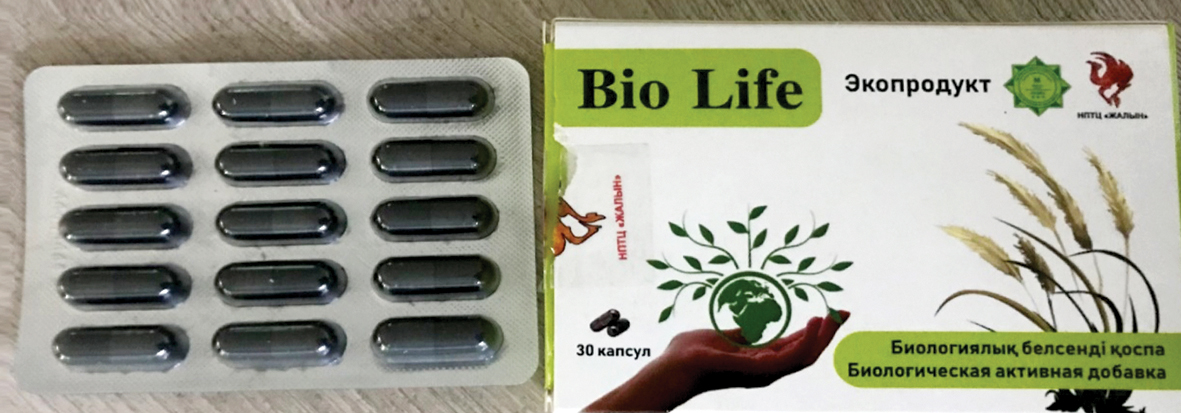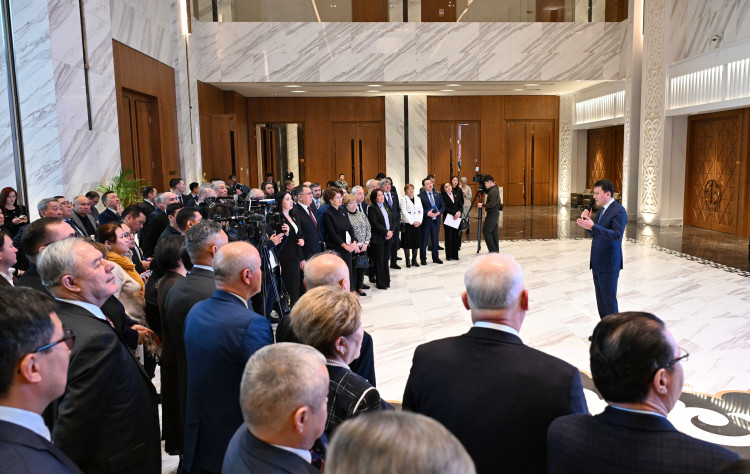PROSPECTS OF APPLIED SCIENCE IN KAZNU

The prospects for applied science and education in Kazakhstan are directly related to their commercialization, i.e. with innovative activities. Innovative scientific activity is a real manifestation of structural complex transformations within scientific organizations and universities, directly interested in integration with production, determining the direction of the search for organizational forms and modern models of managing the process of introducing the results of scientific developments, adequate to a market-oriented economy.
Therefore, at present, the role of universities in the formation of an innovative way of developing the Kazakhstani economy is increasing, where attention is separately focused on the forms of integration of science and production in university complexes and structures. The structure of the innovation process can be represented in the form of fundamental and applied research, development work, innovation, development in production, market entry.
Today's research universities are not only education and science, but also centers of innovation activity and generators of new knowledge and technology. And although education remains the main activity of the university, it is necessary to take steps to support entrepreneurship and regional development, the successful commercialization of technology is not only an entrepreneurial culture, but also a junction of interdisciplinary programs.
In 2018, at the Faculty of Chemistry and Chemical Technology, an educational program for pharmaceutical production technology (TPP) was opened, the symbiosis of which is chemistry and pharmaceutics; under the program of nanotechnology and nanomaterials, disciplines of the module of foundations of biotechnology, nanoengineering in biotechnology, computer modeling of nanostructures and the industry of bionanosystems are taught. Students learn to build physical and chemical models of the studied phenomena in medicine, to select experimental methods and electronic equipment, to assess the viability of the application of nanotechnological developments in medicine.
The training courses form the theoretical foundations for the use of new high-tech nanomaterials with bionanoconstructions in biomedicine. Considered are: nanodiagnostics using high-resolution scanning microscopes, an atomic force microscope for visualizing and counting proteins and their complex, diagnostic systems for detecting disease markers, molecular detectors, an optical biosensor.
Students study the principles of molecular genetic processes and phenomena, as well as their importance in the biotechnological process, theoretical and methodological foundations for understanding the principles of using nanotechnology to study living objects. The objects and methods of nanobiotechnology, the main directions of the use of nanoparticles in biology and medicine, types of nanoparticles, the interaction of nanoparticles with biomolecules and the mechanisms of their penetration into cells are considered.
Interdisciplinarity allows students to apply modeling methods using modern software tools to solve basic problems in relation to modeling nanosystems. Considered are: quantum description of the structure of the atomic world, modeling the structure of many-electron atoms, modeling molecular systems, intermolecular interactions, examples of molecular modeling of nanostructures.
The knowledge gained in the educational process allows students to implement it in a research environment, with a personally oriented and project-oriented approach with practical application. The established immune defense system of the human body is unable to deal with the ever-increasing flow of a wide variety of substances, both organic and inorganic origin. Any foreign substance entering the body, even in a minimal amount, does not go unnoticed. As a result, against the background of a constant increase in the content of toxins in the environment, their accumulation in the body leads to disruption or overstrain of the functional detoxification systems.
At the initiative of the employees of Al-Farabi KazNU, together with medical organizations of Kazakhstan and foreign partners, special laboratories were prepared and tested for the production of drugs that are urgently needed for the health care of the republic: a cartridge for blood purification with carbon hemosorbent, in the form of a multichannel monoblock of laminar flow UG-1, sorption - bactericidal dressing "Aibolit" and capsules with Bio Life enterosorbent.
The novelty of the technology lies in the unique composition and structure of carbon-containing nanostructured sorbents. The synthesized sorbent has an optimal pore structure in the macro-meso- and nanoscale regions. This determines the versatility and speed of action of the drugs, its high sorption capacity and low dose of application. The fundamental difference between the products and the existing analogues is that carbon-containing nanostructured sorbents are of natural origin, high efficiency, the content of natural silicon dioxide, the presence of mesopores, the absence of genetically modified objects and any artificial ingredients.
The results of the work have Eurasian, European and Kazakhstan patents and copyrights for products. The products have a low cost and a high degree of commercialization within the republic and abroad. Thus, in order to develop a technology for the synthesis of a modern innovative medical device, specialists in the related fields of chemistry and medicine, who participate in the treatment and diagnostic process and who are the developers of new drugs for medicine, are urgently needed.
Marat TULEPOV,
Head of the Department of Chemical
physics and materials science
